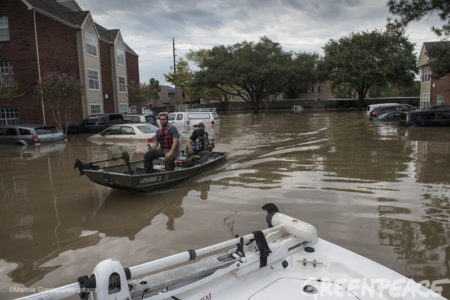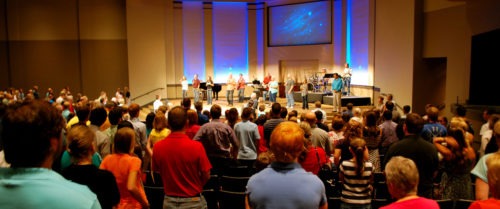Then Jesus, filled with the power of the Spirit, returned to Galilee, and a report about him spread through all the surrounding country. He began to teach in their synagogues and was praised by everyone.
When he came to Nazareth, where he had been brought up, he went to the synagogue on the sabbath day, as was his custom. He stood up to read, and the scroll of the prophet Isaiah was given to him. He unrolled the scroll and found the place where it was written:
“The Spirit of the Lord is upon me,
because he has anointed me
to bring good news to the poor.
He has sent me to proclaim release to the captives
and recovery of sight to the blind,
to let the oppressed go free,
to proclaim the year of the Lord’s favor.”And he rolled up the scroll, gave it back to the attendant, and sat down. The eyes of all in the synagogue were fixed on him. Then he began to say to them, “Today this scripture has been fulfilled in your hearing.” All spoke well of him and were amazed at the gracious words that came from his mouth. They said, “Is not this Joseph’s son?” He said to them, “Doubtless you will quote to me this proverb, ‘Doctor, cure yourself!’ And you will say, ‘Do here also in your hometown the things that we have heard you did at Capernaum.’” And he said, “Truly I tell you, no prophet is accepted in the prophet’s hometown. But the truth is, there were many widows in Israel in the time of Elijah, when the heaven was shut up three years and six months, and there was a severe famine over all the land; yet Elijah was sent to none of them except to a widow at Zarephath in Sidon. There were also many lepers in Israel in the time of the prophet Elisha, and none of them was cleansed except Naaman the Syrian.” When they heard this, all in the synagogue were filled with rage. They got up, drove him out of the town, and led him to the brow of the hill on which their town was built, so that they might hurl him off the cliff. But he passed through the midst of them and went on his way. – Luke 4:14-30 (NRSV)
What happened in this gospel story? Jesus stands up to read the passage for the day and then proceeds to proclaim a brief word on that passage. However, the hometown crowd didn’t care much for what Jesus, a young man they watched grow up, had to say about it. It was a message of justice, hope, and healing for the people who were not of their town or politics or religion or race. After some time away, Jesus returned home just like the Jubilee year instructed, and he announced that the Jubilee year had begun. This was supposed to be a celebratory declaration! Good news for the poor, liberty for the enslaved and oppressed, healing for the sick – the year of the Lord’s favor. “Today this Scripture is fulfilled in your hearing.” Here we go!
And so, the Jubilee became central to Jesus’ identity and mission – to sound and to bring the good news through his words and through his deeds. When the Jubilee Year was prescribed in Leviticus 25 and when it was alluded to later in the prophets, it was truly good news for the people and their children, for it brought a promise of a new start, of freedom.
In the tribal culture in which the ancient world operated, whenever someone fell into abject poverty, they had no welfare system, no unemployment office, no social security benefits, no insurance, no banks to loan money. Therefore, people would sell themselves into slavery just to be able to stay alive. It was a normal part of the culture, yet right there in Leviticus, we see a more graceful way, a merciful and redeeming way of caring for those than the rest of the world would treat them. (You see, Leviticus isn’t just a boring book of codes about what to do and what not to do!)
The people of God were called to exude that more gracious and merciful identity and action all the time. As the promise to Abram said, they were blessed to be a blessing; and as the prophets said later, they were to be “a light to the Gentiles.” Through the Law, the Prophets, and the Writings, God revealed a special concern for immigrants, widows, and orphans. Though the rest of the world would see these as the weakest and mistreat them, it should not be so among God’s covenant people!
And then there would be even more grace in the restart promised every 50 years, when everyone was given a reset. It was a time for all to return home, to set free those who were in bondage, to cancel debts, to give the land some rest, and to return the land back to the family to whom it originally belonged. Do you see this constant reference to “returning”? It reminds me of a certain parable about a return home.
I’m talking about the story in which Jesus tells of the father with two sons in Luke 15. It illustrates well these elements of the tribal culture and the Jubilee promise offered in contrast with it – a younger son wastes the freedom and resources entrusted to him and an elder son fails to realize the freedom he already has. And yet even having failed to truly live into the freedom so generously given to them, there remains a party to welcome them home – both of them. Both of them are invited to the party, just like the Jubilee year had prescribed. The younger son, as you might remember, had gone to a far-off land and ran out of resources. He had to hire himself out, to put himself in bondage, to an oppressing overlord. He finds himself at rock bottom. When he was at rock bottom, he remembers the grace at home. So he decides merely to ask for forgiveness and to become a slave for his father instead, which would’ve been grace enough.
But he gets more than that. He returns home and gets the freedom of Jubilee. His sonship had been returned back to him – the father put a ring on his finger and a robe on him to convey this. And then, the father has shoes put back on his feet. The shoes on his feet show that his freedom is returned. We ought not to miss the fact that this was a risky move by the father, but it was a move that speaks to the Jubilee and its restoration. Sometimes I wonder what happened on those next days after the younger son comes back. Will the elder swallow his pride and relinquish his unforgiveness and join the Jubilee, too? How will the younger son adjust to these new shoes? How will he respond to this grace that he really didn’t expect?
And what about us? The church? What might a return look like for us? It seems clear that we need a moment in which we truly “come to our senses” and start making plans for a return.
Much of the church is teetering on the line of relevancy in the modern world. What we’ve often done is to think that the only way to survive is to talk about worship style or language, to have better events that will entertain more people, or to have the best facilities that are state-of-the-art – that these are what will “attract” young people. But they only matter in a secondary sense. These peripherals only matter insofar as they contribute to a church who understands and lives into its identity and its strengths for mission and ministry. If a church can’t do that, no matter how technically perfect our worship might be, in God’s view, we’re fighting over pig slop. If we’re not truly making a difference in the lives of people and the community, then we’re just a popular group that will one day be forgotten. No matter how flawless our blueprints or formidable these walls are, in the kingdom view, if they’re not for the sort of mission Jesus’ life was all about, then they are built on sand and will fall when any serious wave hits.
Then there’s my denominational family, The United Methodist Church, which faces many challenging realities. The UMC in the United States has faced declining numbers every year since the merger in 1968 took place. What might a return for our tradition look like? If we’re on the brink of drastic change, how can we make the most of it?
Do you know what made Methodism flourish and grow into a sustainable movement? As much as I love a hearty potluck meal, that wasn’t it. And fundraising didn’t make Methodism take off. Instead, there were two central activities that made Methodism truly become a movement with the promise of fruitfulness:
- They got together in small groups and asked one another a set of questions that centered on this overarching question: “How is it with your soul?” In that setting they would search the Scriptures together, they would pray, and they would ask difficult questions to prompt one another toward growing in holiness, in God’s grace. Kevin Watson writes at length about this in The Class Meeting, speaking of how this was the way in which the early Methodists were “watching over one another in love.”
- They cared for their hurting neighbors and reached out to those that the rest of the comfortable world preferred to forget – they preached and gave good news for the poor. They made a difference in their world through mission – they visited prisoners, they visited the sick and fought for the cause of healthcare at a systematic level, especially for the most vulnerable of their society. They did things like tutoring children who were struggling in school, they feed the hungry, and they preached “the glad tidings of salvation” to the common folks, who when they saw they were actually cared for in body realized: “You know what? Maybe these Methodists have something to say that is worth listening to.”
Furthermore, they did these things not haphazardly or aimlessly or in some sort of generic sense, but they were methodical about all this – that’s why they were called Methodists. They went all the way back to their roots, the roots of Christianity, all the way back to Jesus’ mission.
But the movement transformed into an institution. Over time, the membrane of the living organism calcified into an impenetrable wall that is now on the brink of fracturing. Many of us have ceased to be part of a movement, and when facing decline, we’ve hired ourselves out. We have become in bondage and enslaved to other empires, realities, and ideals – and they’re not all tangible things – the comfort zones of similarity, the security of nationalism, the allure and sweetness and satisfaction of consumerism – the things that are “just for us” or help us pay the bills. Keep in mind that this was the mentality of the younger son when he departed – looking out for himself and his wishes and to make sure he had enough money to enjoy whatever he wanted.
Might we come to our senses about the pig food we’ve grown content to feed upon and wake up to the promise of the feast and fruitfulness of our foremothers and forefathers? For there we just might find the sort of Jubilee that inspired Charles Wesley to write:
Ye who have sold for nought your heritage above
shall have it back unbought, the gift of Jesus’ love:
The year of Jubilee is come! The year of Jubilee is come!
Return, ye ransomed sinners, home.
The gospel trumpet hear, the news of heavenly grace;
and saved from earth, appear before your Savior’s face:
The year of Jubilee is come! The year of Jubilee is come!
Return, ye ransomed sinners, home.
The year of Jubilee is come! The year of Jubilee is come!
Return, ye ransomed sinners, home!
In the name of the Father, and of the Son, and of the Holy Spirit. Amen.









 Recently earning a PhD in Theology and specializing in Missiology and Wesleyan Theology from Durham University, his thesis is a dive into “Consuming Mission: Towards a Theology of Short-Term Mission and Pilgrimage.” He is a Senior John Wesley Fellow and a Senior Harry Denman Fellow. His publications and presentations include “The Overlooked Globalizers: Wesleyan Short-Term Missioners, The Missio Dei, and World Christianity.”
Recently earning a PhD in Theology and specializing in Missiology and Wesleyan Theology from Durham University, his thesis is a dive into “Consuming Mission: Towards a Theology of Short-Term Mission and Pilgrimage.” He is a Senior John Wesley Fellow and a Senior Harry Denman Fellow. His publications and presentations include “The Overlooked Globalizers: Wesleyan Short-Term Missioners, The Missio Dei, and World Christianity.” 